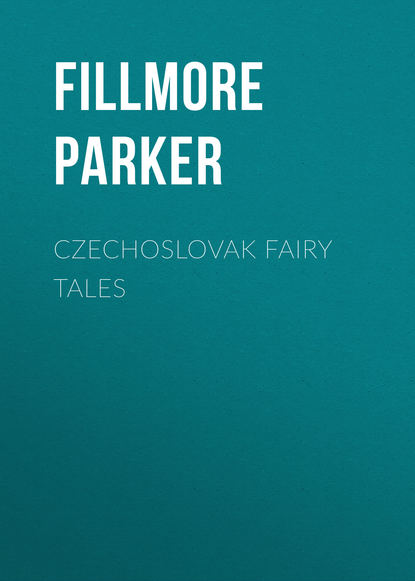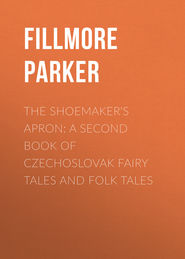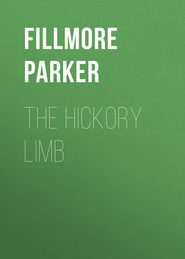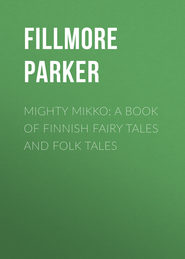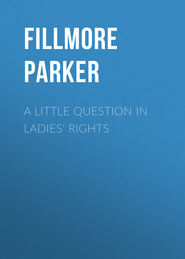По всем вопросам обращайтесь на: info@litportal.ru
(©) 2003-2024.
✖
Czechoslovak Fairy Tales
Настройки чтения
Размер шрифта
Высота строк
Поля
“My dear neighbor,” she said, after she had made the necessary inquiries about health, “the blessing of God came into your house with that child.”
“Oh,” said the other, “if you mean the christening gift, it isn’t so very much. A handful of ducats soon roll away. However, may God repay that good woman, the godmother. At least we can now buy back our old farm and live like respectable people.”
On the way home the burgomaster’s wife stopped at the houses of her various friends and gave them a full account of Lukas’ wealth. Before noon every small boy in the village knew that at Lukas’ house they had a hogshead of ducats.
In the evening Lukas came back from town driving a cart that was piled high with furniture and clothing and feather beds and food. The next day he bought back his old farm with the cattle and the implements.
This marked the beginning of a new life for Lukas. He set to work with industry and put into practice all the lessons that poverty had taught him.
He and his wife lived happily. Their greatest joy was Marishka, a little girl so charming and so pretty that every one loved her on sight.
“Dear neighbor,” all the old women used to say to the child’s mother, “that girl of yours will never grow up. She’s far too wise for her years!”
But Marishka did very well. She grew up into a beautiful young woman and one day a prince saw her, fell in love with her, and married her. So the old godmother’s prophecy that Marishka would make a happy marriage was fulfilled.
THE GOLDEN DUCK
THE STORY OF PRINCE RADUZ AND THE FAITHFUL LUDMILA
THE GOLDEN DUCK
ONCE upon a time there was a king who had four sons. One day the queen said to him:
“It is time that one of our boys went out into the world to make his fortune.”
“I have been thinking that very same thing,” the king said. “Let us get ready Raduz, our youngest, and send him off with God’s blessing.”
Preparations were at once made and in a few days Raduz bid his parents farewell and set forth.
He traveled many days and many nights over desert plains and through dense forests until he came to a high mountain. Halfway up the mountain he found a house.
“I’ll stop here,” he thought to himself, “and see if they’ll take me into service.”
Now this house was occupied by three people: old Yezibaba, who was a bad old witch; her husband, who was a wizard but not so bad as Yezibaba; and their daughter, Ludmila, the sweetest, kindest girl that two wicked parents ever had.
“Good day to you all,” Raduz said, as he stepped into the house and bowed.
“The same to you,” old Yezibaba answered. “What brings you here?”
“I’m looking for work and I thought you might have something for me to do.”
“What can you do?” Yezibaba asked.
“I’ll do anything you set me to. I’m trustworthy and industrious.”
Yezibaba didn’t want to take him, but the old man wanted him and in the end Yezibaba with very ill grace consented to give him a trial.
He rested that night and early next morning presented himself to the old witch and said:
“What work am I to do today, mistress?”
Yezibaba looked him over from head to foot. Then she took him to a window and said: “What do you see out there?”
“I see a rocky hillside.”
“Good. Go to that rocky hillside, cultivate it, plant it in trees that will grow, blossom, and bear fruit tonight. Tomorrow morning bring me the ripe fruit. Here is a wooden hoe with which to work.”
“Alas,” thought Raduz to himself, “did ever a man have such a task as this? What can I do on that rocky hillside with a wooden hoe? How can I finish my task in so short a time?”
He started to work but he hadn’t struck three blows with the wooden hoe before it broke. In despair he tossed it aside and sat down under a beech tree.
In the meantime wicked old Yezibaba had cooked a disgusting mess of toads which she told Ludmila to carry out to the serving man for his dinner. Ludmila was sorry for the poor young man who had fallen into her mother’s clutches and she said to herself: “What has he done to deserve such unkind treatment? I won’t let him eat this nasty mess. I’ll share my own dinner with him.”
She waited until her mother was out of the room, then she took Yezibaba’s magic wand and hid it under her apron. After that she hurried out to Raduz, whom she found sitting under the beech tree with his face in his hands.
“Don’t be discouraged,” she said to him. “It is true your mistress cooked you a mess of toads for your dinner but, see, I have thrown them away and have brought you my own dinner instead. As for your task,” she continued, “I will help you with that. Here is my mother’s magic wand. I have but to strike the rocky hillside and by tomorrow the trees that my mother has ordered will spring up, blossom, and bear fruit.”
Ludmila did as she promised. She struck the ground with the magic wand and instantly instead of the rocky hillside there appeared an orchard with rows on rows of trees that blossomed and bore fruit as you watched them.
Raduz looked from Ludmila to the orchard and couldn’t find words with which to express his surprise and gratitude. Then Ludmila spread out her dinner and together they ate it, laughing merrily and talking. Raduz would have kept Ludmila all the afternoon but she remembered that Yezibaba was waiting for her and she hurried away.
The next morning Raduz presented Yezibaba a basket of ripe fruit. She sniffed it suspiciously and then very grudgingly acknowledged that he had accomplished his task.
“What am I to do today?” Raduz asked.
Yezibaba led him to a second window and asked him what he saw there.
“I see a rocky ravine covered with brambles,” he said.
“Right. Go now and clear away the brambles, dig up the ravine, and plant it in grape vines. Tomorrow morning bring me the ripe grapes. Here is another wooden hoe with which to work.”
Raduz took the hoe and set to work manfully. At the first blow the hoe broke into three pieces.
“Alas,” he thought, “what is going to happen to me now? Unless Ludmila helps me again, I am lost.”
At home Yezibaba was busy cooking a mess of serpents. When noonday came she said to Ludmila: “Here, my child, is dinner for the serving man. Take it out to him.”
Ludmila took the nasty mess and, as on the day before, threw it away. Then again hiding Yezibaba’s wand under her apron, she went to Raduz, carrying in her hands her own dinner.
Raduz saw her coming and at once his heart grew light and he thought to himself how kind Ludmila was and how beautiful.
“I have been sitting here idle,” he told her, “for at the first blow my hoe broke. Unless you help me, I don’t know what I shall do.”
“Don’t worry,” Ludmila said. “It is true your mistress sent you a mess of serpents for your dinner, but I threw them out and have brought you my own dinner instead. And I’ve brought the magic wand, too, so it will be easy enough to plant a vineyard that will produce ripe grapes by tomorrow morning.”
They ate together and after dinner Ludmila took the wand and struck the earth. At once a vineyard appeared and, as they watched, the vines blossomed and the blooms turned to grapes.
It was harder than before for Raduz to let Ludmila go, for he wanted to keep on talking to her forever, but she remembered that Yezibaba was waiting for her and she hurried away.
“Oh,” said the other, “if you mean the christening gift, it isn’t so very much. A handful of ducats soon roll away. However, may God repay that good woman, the godmother. At least we can now buy back our old farm and live like respectable people.”
On the way home the burgomaster’s wife stopped at the houses of her various friends and gave them a full account of Lukas’ wealth. Before noon every small boy in the village knew that at Lukas’ house they had a hogshead of ducats.
In the evening Lukas came back from town driving a cart that was piled high with furniture and clothing and feather beds and food. The next day he bought back his old farm with the cattle and the implements.
This marked the beginning of a new life for Lukas. He set to work with industry and put into practice all the lessons that poverty had taught him.
He and his wife lived happily. Their greatest joy was Marishka, a little girl so charming and so pretty that every one loved her on sight.
“Dear neighbor,” all the old women used to say to the child’s mother, “that girl of yours will never grow up. She’s far too wise for her years!”
But Marishka did very well. She grew up into a beautiful young woman and one day a prince saw her, fell in love with her, and married her. So the old godmother’s prophecy that Marishka would make a happy marriage was fulfilled.
THE GOLDEN DUCK
THE STORY OF PRINCE RADUZ AND THE FAITHFUL LUDMILA
THE GOLDEN DUCK
ONCE upon a time there was a king who had four sons. One day the queen said to him:
“It is time that one of our boys went out into the world to make his fortune.”
“I have been thinking that very same thing,” the king said. “Let us get ready Raduz, our youngest, and send him off with God’s blessing.”
Preparations were at once made and in a few days Raduz bid his parents farewell and set forth.
He traveled many days and many nights over desert plains and through dense forests until he came to a high mountain. Halfway up the mountain he found a house.
“I’ll stop here,” he thought to himself, “and see if they’ll take me into service.”
Now this house was occupied by three people: old Yezibaba, who was a bad old witch; her husband, who was a wizard but not so bad as Yezibaba; and their daughter, Ludmila, the sweetest, kindest girl that two wicked parents ever had.
“Good day to you all,” Raduz said, as he stepped into the house and bowed.
“The same to you,” old Yezibaba answered. “What brings you here?”
“I’m looking for work and I thought you might have something for me to do.”
“What can you do?” Yezibaba asked.
“I’ll do anything you set me to. I’m trustworthy and industrious.”
Yezibaba didn’t want to take him, but the old man wanted him and in the end Yezibaba with very ill grace consented to give him a trial.
He rested that night and early next morning presented himself to the old witch and said:
“What work am I to do today, mistress?”
Yezibaba looked him over from head to foot. Then she took him to a window and said: “What do you see out there?”
“I see a rocky hillside.”
“Good. Go to that rocky hillside, cultivate it, plant it in trees that will grow, blossom, and bear fruit tonight. Tomorrow morning bring me the ripe fruit. Here is a wooden hoe with which to work.”
“Alas,” thought Raduz to himself, “did ever a man have such a task as this? What can I do on that rocky hillside with a wooden hoe? How can I finish my task in so short a time?”
He started to work but he hadn’t struck three blows with the wooden hoe before it broke. In despair he tossed it aside and sat down under a beech tree.
In the meantime wicked old Yezibaba had cooked a disgusting mess of toads which she told Ludmila to carry out to the serving man for his dinner. Ludmila was sorry for the poor young man who had fallen into her mother’s clutches and she said to herself: “What has he done to deserve such unkind treatment? I won’t let him eat this nasty mess. I’ll share my own dinner with him.”
She waited until her mother was out of the room, then she took Yezibaba’s magic wand and hid it under her apron. After that she hurried out to Raduz, whom she found sitting under the beech tree with his face in his hands.
“Don’t be discouraged,” she said to him. “It is true your mistress cooked you a mess of toads for your dinner but, see, I have thrown them away and have brought you my own dinner instead. As for your task,” she continued, “I will help you with that. Here is my mother’s magic wand. I have but to strike the rocky hillside and by tomorrow the trees that my mother has ordered will spring up, blossom, and bear fruit.”
Ludmila did as she promised. She struck the ground with the magic wand and instantly instead of the rocky hillside there appeared an orchard with rows on rows of trees that blossomed and bore fruit as you watched them.
Raduz looked from Ludmila to the orchard and couldn’t find words with which to express his surprise and gratitude. Then Ludmila spread out her dinner and together they ate it, laughing merrily and talking. Raduz would have kept Ludmila all the afternoon but she remembered that Yezibaba was waiting for her and she hurried away.
The next morning Raduz presented Yezibaba a basket of ripe fruit. She sniffed it suspiciously and then very grudgingly acknowledged that he had accomplished his task.
“What am I to do today?” Raduz asked.
Yezibaba led him to a second window and asked him what he saw there.
“I see a rocky ravine covered with brambles,” he said.
“Right. Go now and clear away the brambles, dig up the ravine, and plant it in grape vines. Tomorrow morning bring me the ripe grapes. Here is another wooden hoe with which to work.”
Raduz took the hoe and set to work manfully. At the first blow the hoe broke into three pieces.
“Alas,” he thought, “what is going to happen to me now? Unless Ludmila helps me again, I am lost.”
At home Yezibaba was busy cooking a mess of serpents. When noonday came she said to Ludmila: “Here, my child, is dinner for the serving man. Take it out to him.”
Ludmila took the nasty mess and, as on the day before, threw it away. Then again hiding Yezibaba’s wand under her apron, she went to Raduz, carrying in her hands her own dinner.
Raduz saw her coming and at once his heart grew light and he thought to himself how kind Ludmila was and how beautiful.
“I have been sitting here idle,” he told her, “for at the first blow my hoe broke. Unless you help me, I don’t know what I shall do.”
“Don’t worry,” Ludmila said. “It is true your mistress sent you a mess of serpents for your dinner, but I threw them out and have brought you my own dinner instead. And I’ve brought the magic wand, too, so it will be easy enough to plant a vineyard that will produce ripe grapes by tomorrow morning.”
They ate together and after dinner Ludmila took the wand and struck the earth. At once a vineyard appeared and, as they watched, the vines blossomed and the blooms turned to grapes.
It was harder than before for Raduz to let Ludmila go, for he wanted to keep on talking to her forever, but she remembered that Yezibaba was waiting for her and she hurried away.





